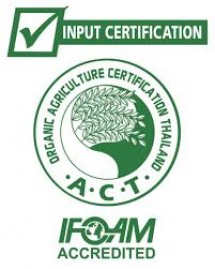Microbes
Beneficial Microbes
Importance of Beneficial Microbes
- facilitate the nutrients transformation process for plant uptaking
- participate in humus formation
- improve soil structure
- predator to nematodes
- role in microbial antagonism - eliminate fungi, bacteria and virus that are harmful to plants
- maintenance of biological equilibrium
- improve soil depletion and erosion
Trichoderma spp.
It is a beneficial fungus that helps protect the plants from molds and bacteria. This fighting hero stands up against root rot and grey mold, protecting the plants from being destroyed. It creates a barrier that makes it impossible for harmful bacteria and pathogens to pass through.
Bacillus subtillis
It is most commonly found in soil environment. It is an important contribiutor to the carbon and nitrogen cycles which will replenish soil nutrients. It can also act as biofungicides for benefiting agricultural crops and antibacterial agents. Bacillus subtillis are non-pathogenic. They are used on agricultural seeds as fungicides that do not affect human.
Bacillus licheniformis
It is a spore-forming soil organism that contributes to nutrients cycling and has antifungal activity. This fungicide can be used on lawn, conifers, tree seedling, ornamental plants in outdoor, greenhouse and nursery sites. It has no detrimental effect on insect, avian, plants and marine species.
Lactobacillus acidophilus
This beneficial microbe is classified as "Probiotics". It acts like biocontrol agent which will antagonize various plant pathogens, induce immunity, and promote plant growth. It is more safe to human, no harmful to environment, easy to reproduce and cost effective.
Saccharomyces cerevisiae
This is the yeast that has antogonistic properties. It is used in numerous promising agriculture applications as natural bio-control agents both as soil treatments and as preventing diseases in pre and post harvest crops.
Chaetomium spp
It can be used to reduce the root rotting problem. It also has the anti-fungal activities against furasium wilt of Tea and Coffee.
Bacillus Megatarium
It is one of the PGPR, Plant growth promoting rhizobacteria, which will increases the formation of specific nutrients, stimulate plant growth and release antibiotics to combat a series of microbial diseases.
Rhizobia
Rhizobia are bacteria that fix nitrogen after becoming established inside root nodules of legumes. It requires the plant host in order to express genes for nitrogen fixation from the atmosphere turning it into a readily useful form of nitrogen. Once the legume dies, the nodules break down and release the rhizobia back into the soil where they can live and survive or reinfect the new legume hosts.





